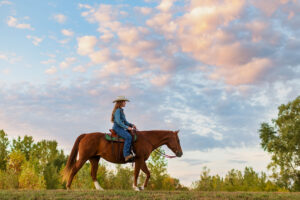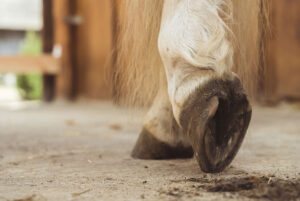DNA Vaccine Protects Foals from West Nile Virus
Scientists recently showed that the West Nile virus (WNV) DNA vaccine, which is licensed but not yet commercially available, should protect foals from the virus regardless of residual antibodies received at birth from their dams that often
- Topics: Article, West Nile Virus (WNV)
Scientists recently showed that the West Nile virus (WNV) DNA vaccine, which is licensed but not yet commercially available, should protect foals from the virus regardless of residual antibodies received at birth from their dams that often interfere with vaccine effectiveness. Prior studies showed protection in yearlings and older horses. Yu-Wei Chiang, PhD, of Fort Dodge Animal Health, the company that manufactures the vaccine, presented results of two immunity studies on Dec. 5 at the 2005 American Association of Equine Practitioners Convention in Seattle, Wash.
Chiang and his co-authors used 30 seronegative foals in the first challenge study, meaning the foals had no evidence of maternally derived antibodies (MDA) against WNV in their blood serum. The foals were all eight to 9 months old. Fifteen foals received two doses of the intramuscular WNV DNA vaccine three weeks apart, and the other 15 remained unvaccinated controls. Scientists gave the virus to the 30 foals via a needle under the skin (they were “needle challenged”) four months after the test group received its second vaccination. They recorded rectal temperatures and clinical signs twice daily, beginning two days before the needle challenge (to establish baseline values), and they took serum samples periodically before and after vaccination and challenge to detect antibody levels. Three serological assays were used to monitor these values–the plaque reduction neutralization test (PRNT), WNV IgG enzyme-linked immunosorbent assay (ELISA), and WNV IgM-capture ELISA.
According to Chiang, the first study showed the vaccine at its preliminary formulation was 83.3% effective. “Similar to previous studies (on WNV vaccines using needle challenge), 80% of the controls developed viremia (presence of virus in the blood) and 13% of the vaccinates showed viremia,” he explained. “There were no detectable clinical signs (in any of the horses).”
Two doses of vaccine increased the foals’ ability to neutralize the virus and increased WNV-specific IgG antibody levels. The levels mean the vaccinated foals were able to produce an immune response that, according to Chiang, should prevent clinical WNV disease
Create a free account with TheHorse.com to view this content.
TheHorse.com is home to thousands of free articles about horse health care. In order to access some of our exclusive free content, you must be signed into TheHorse.com.
Start your free account today!
Already have an account?
and continue reading.

Related Articles
Stay on top of the most recent Horse Health news with


















